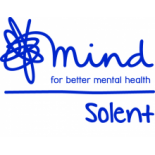Friday 20th February 2026
Subscribe to the
AcSEED mailing list
This is how we share information and good practices relating to mental health and wellbeing support in schools and colleges
What's New
 The AcSEED Newsletter
The AcSEED Newsletter
29th September 2025
AcSEED Newsletter for September 2025
 AcSEED Youth MH Award
AcSEED Youth MH Award
18th July 2025
AcSEED receives Recognised Leader in Youth Mental Health Awareness 2025 Award from Acquisition International.
 Michael Syddall Accreditation
Michael Syddall Accreditation
14th May 2024
Michael Syddall CofE (Aided) Primary School in Richmond, North Yorkshire receive AcSEED Award
 Sherborne House Accreditation
Sherborne House Accreditation
16th January 2024
Sherborne House School in Chandlers Ford, Hampshire receive AcSEED Award

The AcSEED Newsletter
December 2020
In This Issue
- Editorial
What a year that was! - Trinity opens first AcSEED Wellbeing Centre
A look at the AcSEED Wellbeing Centre opened in 2019 at Trinity School and College in Kent. - Kooth: An on-line Mental Health Support Platform
Investigating the role of on-line wellbeing services in schools and colleges. - Mental Health and Wellbeing in Schools Conference
A brief report on the conference hosted by Westminster Insights.
Editorial
2020 has been a year like no other with the Covid-19 pandemic causing massive disruption. It has impacted businesses, education, social interaction, and has ultimately resulted in the loss of many lives across the world. Schools and Colleges have been a primary focus to minimise the impact on children's education, but also to support the mental health and wellbeing of young people during an incredibly challenging time. AcSEED has seen many schools and colleges reacting to this situation with great determination, compassion, and ingenuity. We would like to voice our immense appreciation for all the hard work that staff at schools and colleges have devoted to supporting their pupils and students throughout this traumatic period.
We need to start this newsletter with two apologies. Firstly we acknowledge that Covid-19 has also had an impact on the operational activities of The AcSEED Initiative, and are sorry for any frustration caused by not being able to respond to applications as promptly as we would like. We are also aware that it has been a long time since our last Newsletter, so we will likely be playing catch-up in the next few editions!
In this issue we highlight the opening of the first AcSEED Wellbeing Centre at Trinity School and College in Rochester, Kent. The AcSEED Initiative was founded by young people with lived experience of mental health and wellbeing challenges at school, and we were thus very proud to approve use of the AcSEED name for a wellbeing facility that is entirely dedicated to the wellbeing needs of students.
Throughout 2020 we have seen schools and colleges use a range of on-line services to support their students through the challenges presented by the pandemic. Whilst more normality should start to return as we progress through 2021, we hope that many of the extra wellbeing provisions established this year will continue to provide value as part of a holistic wellbeing offering. AcSEED volunteer Victoria Scrivens-Smith considers the role of on-line wellbeing services as an additional tool to support students, and talks to one school about their experiences of using the Kooth on-line Mental Health support platform.
We also have a brief report from the Westminster Insights conference on Mental Health and Wellbeing in Schools, highlighting a few key messages from the on-line event.
Finally, everyone at The AcSEED Initiative would like to wish the staff and pupils of all schools and colleges a happy and well earned Christmas, and to wish you all a safe and healthy 2021.
Nick Gatherer, AcSEED Chief Executive
Trinity opens first AcSEED Wellbeing Centre


The first AcSEED Wellbeing Center has been opened at Trinity School and College in Kent.
The AcSEED Initiative was founded by young people with lived experience of mental health and wellbeing issues during their school years. They identified safe spaces in schools as an important provision for taking 'time out' when experiencing increased levels of stress, and can also be used as therapy spaces. As low stimulation areas, they also provide a good setting for using sensory equipment.

AcSEED at the Trinity Autism Conference.
The AcSEED Wellbeing Centre was opened as part of the Trinity School and College Autism Conference. The opening ceremony was performed by AcSEED Founder Charlotte Gatherer and AcSEED Chief Executive Nick Gatherer.
Trinity School and College has been an AcSEED accredited school since 2015.
Kooth: An on-line Mental Health Support Platform
By Victoria Scrivens-Smith, AcSEED Volunteer
We traditionally think of mental health and wellbeing support in schools and colleges as being focused on in-house resources and/or face-to-face provisions. However there are an increasing number of on-line resources that can be both valuable and complementary.
Kooth (www.kooth.com) is an on-line Mental Health support platform that has been adopted by a number of AcSEED accredited organisations. AcSEED volunteer Victoria Scrivens-Smith talked to the wellbeing co-ordinator at Blessed Thomas Holford Catholic College, Niamh McManus, about their experiences with Kooth.
Niamh told us that Kooth became a part of the college’s wellbeing provision after hearing about the availability of on-line counselling services at assemblies run for schools in the Trafford Borough area. “This was right for our pupils who have access to the help Kooth can offer outside of term time and we felt it was important for our pupils to know the support services which existed.”
-
AcSEED: What response have you seen in students that are receiving support from Kooth?
Niamh: Pupils who took part in the Kooth workshops enjoyed these and it had allowed the groups of boys to talk openly about male mental health and wellbeing. From my perspective of being in these workshops they were very thought provoking and allowed boys who would not usually share their feelings to do so in a safe environment.
-
AcSEED: Do you have any numbers of how many students take up the support from Kooth either through direct referral from school or through students’ self-referring?
Niamh: Due to the nature of Kooth we do not know which pupils have access to this as they set up their own usernames and passwords to be able to use this. I have worked with groups in workshops with Kooth in which these pupils all logged on to the Kooth website and gave their feedback on the website and how to make this more accessible to young people.
-
AcSEED: What have you found are the benefits of having an online counselling service available?
Niamh: Pupils of all year groups are made aware of this - this is advertised in their form rooms - this is to allow pupils who wish to access the service to make the decision to do this.
-
AcSEED: How do you think the importance of online counselling being available to students during the holiday period is, do you see this as a key factor in deciding to use them?
Niamh: It is very important for pupils and their parents to know where to access information and support outside of school time.
-
AcSEED: Do you have any advice or suggestions for other schools and colleges considering the use of on-line counselling services?
Niamh: Kooth operate in different areas but they are really useful in providing workshops and assemblies. I would definitely recommend getting in touch with them.
It is clear that Kooth has provided a useful addition to the wellbeing toolbox at Blessed Thomas Holford Catholic College. The young people that founded AcSEED were very conscious of the need for pupils to have multiple options to reach out for help and support. Whilst in-school and in-person provisions will continue to be highly important, on-line services such as Kooth also look to have a useful role to play.
When a school/college decides to adopt an on-line mental health and wellbeing service, it is useful to consider how it will integrate and contribute to their overall wellbeing provision:
- How would on-line counselling services co-exist with more traditional face-to-face counselling provisions?
- How would the continuity of support be impacted by using on-line services as an out-of-term provision to complement in-house provisions?
- How will the quality and value of the on-line service be monitored? This could potentially be done by an external authority, however the school/college might find value from receiving some key metrics from the service (assuming this can be done whilst also protecting individual privacy):
- Number/percentage of pupils accessing the service.
- Year group (age) profile.
- Gender and minority group profiles.
- Support needs profile, particularly to identify any peaks or trends in specific wellbeing difficulties.
This type of data would enable schools and colleges to assess the potential need for alternative and/or additional mental health and wellbeing provisions.
We would like to thank Niamh McManus for her valuable insight on experiences of using Kooth at Blessed Thomas Holford Catholic College.
If you have experience of using Kooth (or other on-line wellbeing services) as part of your school/college mental health and wellbeing provisions, do please let us know. We are happy to publish further feedback on the use of these service so that others can benefit from your practical experiences.
Write to us at: contact@acseed.org
More information on Kooth at: www.kooth.com
Report: Mental Health and Wellbeing in Schools Conference

By Nick Gatherer, AcSEED Chief Executive
A look back at the 2019 Conference
The AcSEED Initiative was invited to present at the Mental Health and Wellbeing in Schools conference in 2019. Our presentation described how the young people that founded AcSEED used their lived experience of mental health and wellbeing challenges at school to define the AcSEED wellbeing framework and criteria for accreditation.
Presenting with us were representatives from Trinity School and College in Rochester Kent, who were one of the first organisations to achieve AcSEED accreditation. Executive Principal Elizabeth Baines provided an overview of the school's approach to mental health and wellbeing, whilst 3 of the school's pupils described the positive impact that the school's ethos and support of staff support made to their own wellbeing. As an organization founded by young people it was an honour for us to be presenting alongside these young ambassadors. Their presentations were highly engaging, and their key messages full of positivity and hope. In my view a highlight of the whole conference!
2020 Conference
The 2020 conference was held on 11th November 2020, and due to Covid-19 restrictions was an on-line event. This is not a comprehensive report, but aims to highlights a few key messages.
-
Alexandra Shaw from the Department for Education provided an update on the government's "Transforming children and young people's mental health provision" green paper. This document aims to deliver against the vision set out in the 2015 "Future in Mind" report compiled by a government taskforce that included AcSEED founder Charlotte.
Despite the impact of Covid-19, the roll-out of regional Mental Health Support Teams is continuing with the aim to achieve 20%-25% coverage across the country by 2023. These teams are funded to provide interventions to support those with mild to moderate needs and support the promotion of good mental health and wellbeing. Clinical Commissioning Groups (CCG's) take the lead in establishing MH Support Teams, and are prioritizing according to local need. The Anna Freud Centre are driving the Link Programme which provides training and support for the collaboration between education and mental health professionals.
The government green paper promotes a whole school approach to mental health and wellbeing support, and continues to align well with the AcSEED wellbeing criteria. We believe that local Mental Health Support Teams, and training for senior mental health leads, will be valuable resources for schools aiming to achieve AcSEED accreditation.
-
Zulfi Jiva, Head of Cross Cutting Programmes at Greater Manchester Health & Social Care Partnership, reported findings and impact of the Greater Manchester Healthy Schools Project. As part of the Trailblazer Program to pilot Mental Health Support Teams, the project is now supporting 110 schools across Greater Manchester (approximately 10%). There has been a universally positive response from schools participating in the pilot scheme which has focused particularly on transitions. One observation is that the supervision model recommended by the national scheme is very resource intensive and may not be sustainable.
-
Dr Julie Greer, Headteacher at Cherbourg Primary School in Hampshire, addressed the challenges faced by schools in supporting the mental health and wellbeing of their pupils. In addition to the whole school approach used at Cherbourg, Dr Greer highlighted the need to support staff wellbeing and the need for a supportive governing body.
-
Jamie Smith, Director of the Schools Programme at the Anna Freud Centre, highlighted the organisation's mission to translate research evidence into practice. They provide a wide range of resources and training, including a 5-step framework for introducing a whole school/college approach to mental health and wellbeing. They also provide resources on measuring and monitoring wellbeing provisions.
To submit an article or letter for publication in The AcSEED Newsletter, or to request further information on the content of this newsletter or The AcSEED Initiative, please email us at: contact@acseed.org





